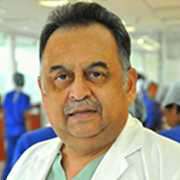Top 10 Kidney Transplant Hospitals in India
When a person is diagnosed with kidney failure, also known as end-stage renal disease (ESRD), they may need dialysis or a kidney transplant. Kidney transplant is a life-saving treatment option for people suffering from kidney failure as it not only increases the life-span of the patient but also improves their quality of life.

Kidneys are two bean shaped organs that are located in the lower abdomen (below the rib cage). The main function of the kidneys is to filter the blood in order to remove waste products from the body in the form of urine.
The kidneys are also involved in other important functions of the body such as regulation of blood pressure by releasing specific hormones and stimulation of red blood cell production by producing the hormone erythropoietin.
When the kidneys lose their ability to function properly and completely cease to work, the condition is termed as kidney failure or end-stage renal disease. This leads to accumulation of toxic waste products in the body which makes the person sick. In such conditions, there are two treatment options – dialysis and kidney transplant.
In dialysis, the excess water and waste that builds up in the patient’s bloodstream is mechanically filtered using a dialysis machine. A dialysis or Hemodialysis machine acts like an artificial kidney.
Dialysis needs to be scheduled regularly (2-3 times per week) and the person remains permanently dependent on dialysis to routinely cleanse the blood. It is a time intensive procedure which requires making frequent trips to a dialysis center so limits the patient’s lifestyle and they always need to be in close proximity to a center.
Some people with kidney failure are recommended for a kidney transplant. This procedure involves removal of one or both kidneys which are then replaced with a donor kidney from a living or deceased person. Kidney transplant surgery is a safe and effective method to treat end stage renal disease.
The success rate of kidney transplant is very high and a significant number of people who undergo this surgery experience a remarkable improvement in quality of life. The procedure frees the patient from regular schedules and dependence on dialysis. This allows them to enjoy a more active lifestyle and have fewer dietary restrictions.
The average living kidney donor transplants are reported to last for about 15-20 years, and deceased kidney donor transplants for around 10-15 years.
Get Free Assistance from Best Kidney Transplant Hospitals in India
Why undergo kidney transplant procedure in India?
There are many benefits of choosing India for your kidney transplantation procedure. A large number of patients from abroad travel to India each year for all types of organ transplantation procedures.
Kidney transplant is one of the most sought-after procedures for which people come to India and the country has one of the largest living donor kidney transplant programs in the world.
The key benefits of choosing to undergo Kidney transplant in India are:
Internationally accredited hospitals: The kidney transplant hospitals in India have been certified by the world’s leading healthcare accreditation organizations, such as Joint Commission International (JCI) and National Accreditation Board for Hospitals and Healthcare Providers (NABH). Hospitals accredited by these boards are evaluated for the quality of patient services and marked for the standard of treatment and facilities they provide.
World-class infrastructure and the latest technology: Healthcare in India is a highly developed sector. Indian hospitals are equipped with some of the world’s most sophisticated medical technologies. These modern systems enable the surgeon to perform an operation with more precision and accuracy, resulting in better clinical outcomes and minimal postoperative complications.
Top kidney transplant surgeons: Indian surgeons are famous all across the globe for their medical knowledge and expertise. They have received extensive training and are experts in the field of nephrectomy and renal transplant surgery. The best kidney transplant surgeons in India have vast experience in performing all kinds of kidney transplant procedures and handling complex cases of renal failure.
Low cost of treatment: This is the major benefit of choosing India. The cost of kidney transplant in India is highly economical and costs much less than in other countries. The cost of kidney transplant in India is around USD 14000. This cost is inclusive of pre-transplant investigations, surgery and post-transplant follow-up.
A person from abroad is estimated to save up to 40-50% on the price if they undergo kidney transplant in India. The biggest plus point is that the overall cost of treatment remains economical even after adding up the expense of air tickets, accommodation, food and other facilities. This is because the average cost of living in India is far less than that in the United States of America and many European countries, mostly due to the currency difference.
The success rate of kidney transplant in India: Kidney transplant survival rate in India is very high, almost close to 100%. With the use of advanced technology and the latest surgical techniques along with modern-day immunosuppressants medications, stringent infection-control protocols and comprehensive rehabilitative care, the success rate of kidney transplant in India is remarkably high.
Additional services for international patients: The top kidney transplant hospitals in India cater to a large volume of international patients on a regular basis. The international patient management team at these hospitals ensures the patients from overseas receive reliable medical care and the best facilities.
The top-tier hospitals in India have many specialized international patient services including teleconsultation with expert doctors, transportation from the airport, multi-lingual translators, global cuisine, currency exchange services and different modes for bill payment.
| # | City | Hospital Name | Estimated Cost |
|---|---|---|---|
| 1 | New Delhi | Max Super Specialty Hospital Saket | USD 13,000 |
| 2 | Gurugram | Narayana Superspeciality Hospital | USD 13,000 |
| 3 | Gurugram | Medanta The Medicity | USD 14,000 |
| 4 | New Delhi | BLK Super Speciality Hospital | USD 14,000 |
| 5 | New Delhi | Indraprastha Apollo Hospitals | USD 15,000 |
| 6 | New Delhi | Manipal Hospital, Dwarka | USD 14,500 |
| 7 | Mumbai | Wockhardt Hospital North Mumbai | USD 15,000 |
| 8 | Mumbai | Kokilaben Dhirubhai Ambani Hospital | USD 19,000 – 20,000 |
| 9 | Chennai | Gleneagles Global Hospital Chennai | USD 13,500 – 15,000 |
| 10 | Bengaluru | BGS Gleneagles Global Hospital Bangalore | USD 15,000 – 18,000 |
How does Lyfboat help patients with finding the best kidney transplant hospitals in India?
Kidney transplant procedure is offered by several hospitals, including both government and private-owned healthcare facilities, in various parts of the country. This presents plenty of options to a patient with chronic kidney failure planning to undergo kidney transplantation in India.
Lyfboat is a NABH accredited medical advisory platform that can help you find the best hospital and doctor in India in accord with your budget and specific needs. Patients traveling with Lyfboat are offered a number of services including
- Quotations from multiple accredited hospitals
- Guidance on how to choose the right hospital and surgeon
- Assistance with price comparison and negotiating discounts
- Visa assistance
- Airport pick-up and drop
- Assistance with accommodation arrangements
- Help with travel logistics
- Making appointments
- Continuous follow-up after the patient returns to their home country
Lyfboat is connected to the top kidney transplant hospitals in Delhi, Gurugram, Bengaluru, Chennai, Hyderabad and other cities. These hospitals are recognized medical care facilities that offer cost-effective healthcare packages for international patients.
Lyfboat strives to provide the most negotiated price for treatment without compromising the quality or outcomes of a procedure. Patients are provided a detailed comparative analysis of the treatment plan from different hospitals and varying costs.
This allows you to choose a hospital and doctor that is most suited to your requirements and comfort. Not only this, a dedicated team of patient coordinators/representatives are available around the clock for assistance and to respond to your queries.
Here we have listed the 10 best kidney transplant hospitals in India that offer exceptional patient care and high-quality treatment.
Best Kidney Transplant Hospitals in India
1. Max Super Specialty Hospital Saket
1,2 Press Enclave Road, Saket , New Delhi, DL, India, 110017
No of beds: +500
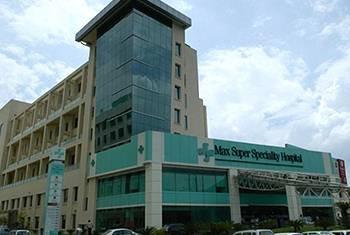
Max Super Specialty Hospital is one of the best kidney transplant hospitals in India and is a popular choice for numerous international patients.
The kidney transplant facility at this apex hospital is a center of excellence that offers all kinds of kidney transplant procedures, including the advanced technique ABO Incompatible Kidney Transplant that eliminated the need for a blood type match.
The center is known to provide exceptional services in the field of nephrology, chronic kidney disease, dialysis, and kidney transplantation.
It is fully equipped to perform all kinds of endoscopic and laparoscopic surgeries with excellent clinical outcomes.
At Max, a team of experts including nephrologists, urologists, renal transplant surgeons along with highly trained medical staff delivers holistic and reliable care to kidney patients.
Estimated kidney transplant cost at Max Super Specialty Hospital: USD 13,000
Accessibility: Indira Gandhi International Airport is approximately 16 Km away from Saket Max Hospital and it takes around 20 minutes in a car to reach the hospital. Saket Metro Station is just 1 Km away from Max Hospital and can be reached in a few minutes via road.
2. Narayana Superspeciality Hospital
Plot 3201, Block – V, DLF Phase – III, Nathupur, Sector 24, Gurugram, Haryana – 122002
No of beds: 215
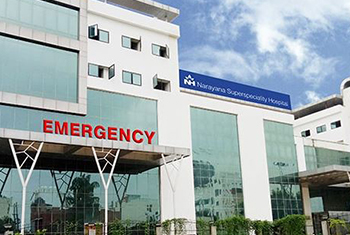
Narayana Superspeciality Hospital is a part of Narayana Health, one of India’s leading healthcare service providing brands and is considered to be one of the best kidney transplant hospitals in India.
This hospital has dedicated facilities for different specializations and kidney transplant surgery is one of them. The kidney transplant and nephrology department at Narayana delivers comprehensive care to patients with renal problems.
The department has full-fledged dialysis units that operate 24/7 and have modern equipment and facilities for nephrology treatment.
The doctors at Narayana are some of the most renowned and experienced kidney transplant specialists and best nephrologists in India
Estimated kidney transplant surgery cost at Narayana Superspeciality Hospital: USD 13,000
Accessibility: Narayana Hospital, Gurugram is around 12 Km away from the Indira Gandhi International Airport and it takes approx. 24 min drive to reach the hospital from the airport.
Nearest Metro Station to the hospital is Moulsari Avenue Rapid Metro station which is only 0.5 km away from the hospital.
3. Medanta The Medicity
Sector 38, CH Baktawar Singh Road, Gurgaon, HR, India, 122001
No of beds: 1250
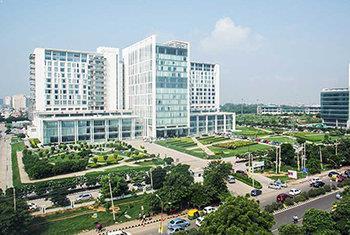
One of the best kidney transplant hospitals in India, Medanta is a multi-super specialty quaternary care hospital with world-class infrastructure and medical facilities.
The Institute of Kidney and Urology at Medanta provides patients high-quality nephrology care at affordable prices. The unique and holistic approach of treatment at the institute ensures patient-oriented management of the disease is followed and results in a high success rate of treatment.
The kidney transplant program at Medanta is one of the best in North India which caters to a number of international patients routinely. The center offers services in minimally invasive surgical techniques with high-end techniques such as da Vinci robotic surgery.
The round the clock available dialysis, and transplant care facilities at the institute provide comprehensive care in all areas of nephrology.
Estimated kidney transplant price at Medanta Hospital: USD 14,000
Accessibility:
Medanta is located 18 km from Indira Gandhi International Airport and the hospital can be reached in about 20 min from the airport.
HUDA City Center is the nearest metro station to the hospital, which is around 4 Km.
Get Free Assistance for Kidney Transplant Surgery in India
4. BLK Super Speciality Hospital
Pusa Road, Radha Soami Satsang, Rajendra Nagar, New Delhi, DL, India, 110005
No of beds: 650
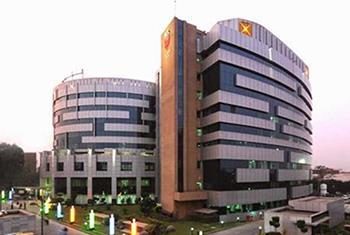
BLK Super Specialty Hospital is a leading multi-specialty quaternary care hospital with a renowned kidney transplant program for domestic as well as international patients.
The procedure is conducted at the Dept of Nephrology and kidney Transplant at BLK, which is led by a team of a renowned urologist and the best nephrologists in Delhi.
The Nephrology Department offers a range of services for patients with kidney diseases. These include a Blood Pressure Clinic, Diabetic Nephropathy Clinic, Central line and Perma cath for long term hemodialysis
The hospital has a high-tech kidney transplant unit equipped with HEPA filters, laminar flow and barrier nursing to eliminate the risk of infection and post-surgery complications.
At BLK, patients are provided personalized care in the Kidney transplant unit with a patient to nurse ratio of 1:1. The rehabilitation is delivered with special emphasis on diet and physiotherapy to enhance kidney functions.
A team of experienced transplant coordinators are involved through the process and educate the families on organ donation from deceased donors.
The estimated cost of kidney transplant operation at BLK Hospital: USD 14,000
Accessibility: BLK Hospital is 20 km away from Indira Gandhi International Airport and it takes about 24 min via road to reach the hospital from the airport.
The nearest Metro Station to the hospital is Rajendra Nagar Metro Station which is just 2 min walking distance away.
5. Indraprastha Apollo Hospitals
Sarita Vihar, Delhi-Mathura Road, New Delhi, DL, India, 110076
No of beds: 695
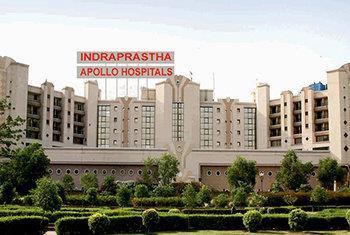
Apollo Healthcare Group is a forerunner medical service provider and is renowned all over the world. Indraprastha Apollo Hospital is its flagship hospital and is known to be one of the best hospitals in Delhi.
The Centres of Nephrology and Urology at Apollo have a comprehensive kidney transplant program with both living and deceased renal transplants.
Over 21000 successful kidney transplants have been performed by the doctors at Apollo including various types of procedures, such as autologous kidney transplant, cadaveric donor kidney transplant, related as well as an unrelated living donor kidney transplant.
The center has India’s first organ transplant and offers minimally invasive surgery (Laparoscopic Nephrectomy) for donors which minimizes recovery time and hospitalization after the surgery.
The success of the center can be attributed to the rigorous infection control practices and immunosuppressive protocols with a focus on complications and their management that are followed by Apollo.
The Transplant team at Apollo integrates, analyzes, and addresses the health issues of kidney failure patients and their families.
The estimated cost of kidney transplant at Indraprastha Apollo Hospital: USD 15,000
Accessibility: Indraprastha Apollo can be reached via road in 25 min from Indira Gandhi International Airport (20 Km distance).
Jasola Apollo Metro Station is just 50 meters away (2 min walk) from the hospital.
6. Manipal Hospital, Dwarka
Palam Vihar, Sector 6, Dwarka, New Delhi, DL, India, 110075
No of beds: 380
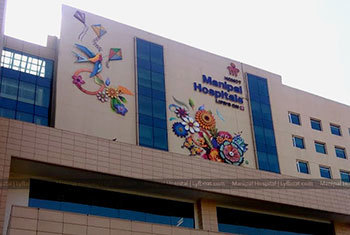
Manipal Hospital, Dwarka is a part of Manipal Education and Medical Group (MEMG), one of India’s leading healthcare service providers and education groups.
The hospital is a multi-super specialty hospital that caters to a large number of domestic as well as international patients.
The Department of Nephrology at Manipal has a modular hemodialysis unit and is operated under the guidance of experienced doctors and trained nurses with 24-hour backup.
The kidney transplant team at Manipal includes some of the best Nephrologists in Delhi and provide expert renal care to transplant patients.
The department has a committed hemodialysis facility for patients suffering from kidney failure and offers a range of services for the management of all kidney disorders.
The estimated cost of renal transplant at Indraprastha Apollo Hospital: USD 14,500
Accessibility: The hospital is located approximately 7.5 km away from Indira Gandhi International Airport and can be reached in approx. 15 min via road.
The nearest metro station is Sector 10 Dwarka Metro Station which is just 3 km away from the hospital.
Other Best kidney transplant hospitals in Gurugram:

Fortis Memorial Research Institute
Sector – 44, Opposite HUDA City Centre, Gurgaon, HR, India, 122002

Artemis Hospital
Near Unitech Cyber park, Sector 51, Gurgaon, HR, India, 122001
Best Kidney Transplant hospitals in Mumbai
7. Wockhardt Hospital North Mumbai
The Umrao IMSR Near Railway Station, Mira Road (E) Dist. Thane, Mumbai, MH, India, 401107
No of beds: 350
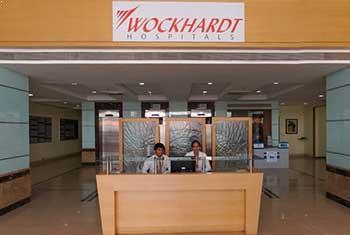
Wockhardt Hospital is a renowned multi-specialty tertiary care medical facility and is considered to be one of the best hospitals in Mumbai.
The hospital is fully committed to its vision to serve and enrich the quality of life of patients suffering from terminal kidney diseases.
The Nephrology Department at Wockhardt has a dedicated Kidney Replacement therapy program with services, including Haemodialysis, Peritoneal Dialysis, Renal Transplantation for the treatment of kidney diseases.
The center has a record of many successful kidney transplants where the patient has benefited from the procedure and had a better quality of life. The stringent infection control protocols, quality clinical care, advanced facilities, and international standard services attribute to the success of renal transplantation at Wockhardt.
The hospital houses a well-established dialysis unit with an intensive care facility and modular operation theatre with the latest medical equipped to carry out complex renal transplantation surgeries.
Estimated kidney transplant cost at Wockhardt Hospital: USD 15,000
Accessibility: Chhatrapati Shivaji International Airport is at a distance of 23 km from the Wockhardt hospital, Mira Road. The hospital is well linked to metro and railways stations also.
8. Kokilaben Dhirubhai Ambani Hospital
Rao Saheb Achutrao, Patwardhan Marg, Four Bunglows, Andheri West, Mumbai, Maharashtra, India, 400053
No of beds: 750
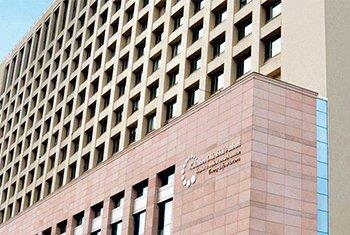
Kokilaben Dhirubhai Ambani Hospital is one of the top hospitals in Mumbai that offers exceptional medical care services and facilities.
The departments of Nephrology and Urology at this hospital has one of the largest dialysis units in Mumbai and a comprehensive renal transplant program.
The center offers services for all types of renal transplant procedures, including deceased donor kidney transplant, living donor kidney transplant as well as the modern techniques including Paired Kidney Exchanges, ABO-Incompatible Transplant and Laparoscopic Donor Nephrectomy.
The Kidney Transplantation Team at Kokilaben Hospital comprises of various specialists in the field of transplantation medicine and surgery, including the best nephrologists in Mumbai, transplant surgeons, and transplant coordinators.
Estimated kidney transplant cost at Kokilaben Hospital: USD 19,000 – 20,000
Accessibility: The hospital is just 8 km away from Chhatrapati Shivaji International Airport and is reached shortly via road.
The nearest metro station is Versova Metro Station which is at a distance of 1 km from the hospital.
Other Best kidney transplant hospitals in Mumbai:

Nanavati Super Speciality Hospital
Nanavati Super Speciality Hospital, S.V. Road, Vile Parle (West), Mumbai

Global Hospital Mumbai
Dr. E. Borges Road, Hospital Avenue, Opp Shirodkar High Scholl, Parel, Mumbai, MH, India, 400012

SevenHills Hospital
Marol Maroshi Road, Andheri East, Mumbai, MH, India, 400059
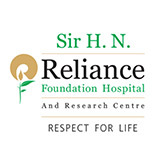
Sir HN Reliance Foundation Hospital and Research Centre
Raja Ram Mohan Roy Road, Prarthana Samaj, Girgaon, Landmark: Near Charan Road & Grand Road Station, Mumbai, MH, India
Best Kidney Transplant hospitals in Chennai
9. Gleneagles Global Hospital Chennai
439, Cheran Nagar, Sholinganallur, Medavakkam Road, Perumbakkam, Chennai, TN, India, 600100
No of beds: 1000
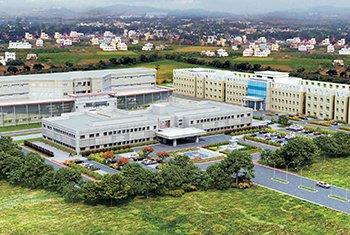
Gleneagles Global Hospital is one of the most renowned medical centers in Chennai that provides services across all the major specialties and subspecialties.
The hospital has one of the best kidney transplant procedures in South India that provides international standard quality nephrology care to the patients. Gleneagles Global Hospitals is the first healthcare facility to perform combined Kidney & Heart transplantations in India.
The department of Kidney Transplantation at Gleneagles is equipped with the most updated medical technology and first-class facilities for paramount patient care.
The surgeons at this center are highly qualified and experienced professionals who are experts in performing different types of kidney transplantation procedures.
The well-maintained, accredited labs and modular surgical suites with advanced instruments are available for the surgery.
The kidney transplant program at the hospital covers live and cadaveric transplants as well as Combined Liver Kidney Transplant and Laparoscopic donor Nephrectomy
Estimated kidney transplant price at Gleneagles Global Hospital, Chennai: USD 13,500 – 15,000
Accessibility: The hospital is 17 km away from the Chennai International Airport and can be reached in approximately 20 min via road.
Other Best kidney transplant hospitals in Chennai:

Apollo Hospital Chennai
No. 21, Greams Lane, Off. Greams Road, Chennai, TN, India, 600006
Best Kidney Transplant hospitals in Bangalore
10. BGS Gleneagles Global Hospital Bangalore
67, Uttarahalli Road, Kengeri, Bengaluru, Karnataka, India, 560060
No of beds: 500
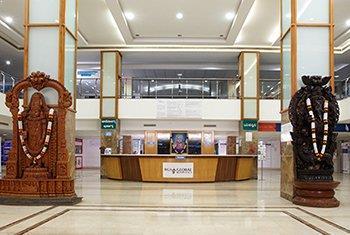
BGS Gleneagles Global Hospital is one of the top kidney transplant hospitals in Bangalore that offer comprehensive medical care to patients at an affordable price range.
The hospital has a well-established kidney transplant program that operates on the vision to provide care to patients with end-stage renal disease.
The team of doctors at the center includes the best kidney transplant doctors in Bangalore who work with trained and specialized nurses to deliver excellent surgical results and minimize post-surgery complications and chances of organ rejection.
Estimated kidney transplant cost at BGS Gleneagles Global Hospital, Bangalore: USD 15,000 – 18,000
Accessibility: The Bengaluru International Airport is 51 Km away from the hospital and requires approximately an hour to reach through the road.
Every treatment has its own set of hurdles and benefits. And every individual body reacts differently to treatment.
The doctors in India ensure that their patients have no reservations; as a result of their experience and dedication, the medicinal worth of traveling to India has also increased.
- A kidney transplant is a life-saving medical option for renal failure patients since it extends their life expectancy and enhances their quality of life.
- End-stage renal disease is caused by a variety of factors, including:
- Diabetes
- Uncontrollable high blood pressure.
- Chronic glomerulonephritis is inflammation and eventual scarring of the kidney’s small filters.
- Polycystic kidney disease (PKD)
- This surgical procedure called a kidney transplant is done to treat renal failure. A healthy kidney from a deceased person or a matching donor is used to replace a sick or failing kidney.
- The kidneys filter waste metabolites from the body and clean the blood by excreting waste through urine. As a result, the kidneys assist in controlling the body’s electrolyte balance.
- The individual is permanently reliant on dialysis to frequently cleanse the blood, and appointments for it must be made on a regular basis (2–3 times a week). The patient’s lifestyle is constrained by the time-consuming treatment and many trips are required to the dialysis facility; they must always be nearby.
- Surgery is performed in kidney transplants to replace an infected kidney with a healthy kidney from a living or deceased donor. The patient no longer requires dialysis since the donated kidney performs the functions of two failing kidneys.
- A new kidney is implanted in the lower abdomen during the transplant procedure, and its artery and vein are joined to the body’s artery and vein.
- Once the blood begins to flow into the replacement kidney, it immediately begins to produce urine.
- But occasionally, it could take a few weeks for everything to get back to normal.
India’s Position in the Case of Kidney Transplant
According to outdated data from the Indian Transplant Registry, a non-governmental project of the Indian Society of Organ Transplantation, only 783 of India’s 21,395 kidney transplants from cadavers or deceased donors occurred between 1971 and 2015. This is also a result of the family members’ lack of awareness and apprehension
Organ donations have, nevertheless, significantly increased since 2012. India’s Live Kidney Transplant Program has developed over the past 50 years and is now, in terms of participants, the second-largest program after the United States.
Improved immunosuppressive medications and induction agents prevent early rejection occurrences.
The use of high-dose steroids to prevent graft rejection has also undergone a number of improvements, which has led to a decrease in the incidence of postoperative problems in transplant surgery.
Additionally, there have been significant advancements in transplant techniques, such as the use of minimally invasive techniques to handle surgical problems.
A rule establishing a “required request” for intensive care doctors to request organ donation in the event of brain death has been a part of Indian Law and Amendments since 2011. Additionally, it mandates national registration and family organ donation counselling. This has also contributed to an increase in deceased donation rates in India.

Frequently Asked Questions about Kidney Transplant in India
Types of Transplants
- Deceased donor: A person whose death from brain or cardiac disease was followed by the recovery of at least one solid organ for transplantation.
- Expanded Standards Donor (ECD): a deceased donor who was older than 60.
- Living donor: An individual who gives an organ while still living.
Freedom is the main advantage of a successful transplant. There is relief from the misery of dialysis.
More cost-effective than dialysis.
It is not necessary to adhere to the water and fluid restriction set by dialysis. There are no longer any dietary restrictions in place.
It’s possible to take a well-deserved vacation, get back to regular activities, and regain the capacity to become pregnant. Men regain their sexual potency, making regular sex possible.
One feels better after a successful kidney transplant since indications of anaemia, bone disease, and persistent weariness are gone.
While on dialysis, it may be impossible to work full-time, but after a transplant, it is conceivable.
The best hospitals and doctors in India are available at Indian hospitals that undertake transplant surgery. These institutions are renowned for their patient care services and hospitality.
For an international patient, selecting an appropriate facility for kidney transplant treatment can be challenging. It is a crucial choice that needs to be made while keeping a number of things in mind, such as:
- Accreditations and certifications for excellence
- Location of the hospital and the transit hub
- Team of surgeons and doctors
- Modern diagnostic and treatment tools
- Overseas medical help.
An active family member or friend makes the best donor. Additionally, to make the surgery more convenient, their participation increases the likelihood that the transplant will be successful, according to data. The majority of successful transplants have used organs from cadaver donors, which are the most prevalent supply of organs.
Many people believe that they cannot have a kidney transplant if they are too old, but if you are otherwise healthy, age is not taken into account when deciding your candidacy for a transplant.
However, there may be additional reasons why a patient cannot have a kidney transplant, such as:
- Current life expectancy is less than 5 years.
- Recent cancer (other than most skin cancers).
- Untreatable heart disease/ psychiatric illness.
- Missing dialysis appointments or signing off the machine early.
- Active substance abuse (alcohol or drugs).
- Lack of health insurance.
It is area-specific. Every region and nation has its own criteria for availability. The waiting period for a dead donor kidney typically lasts between five and seven years. Living kidney donation can significantly shorten waiting times and help patients avoid dialysis if a suitable living donor is available.
Despite the advantages and disadvantages of both treatments, research indicates that those who successfully obtain a kidney transplant live longer than people who have dialysis. Furthermore, compared to people who are on dialysis, many transplant patients report a superior quality of life.
When someone is referred to start receiving dialysis treatments or when their glomerular filtration rate (GFR) is 20 percent or less, they should be assessed for a kidney transplant.
Based on our research, gender-matched kidney transplants are recommended. Female donors to male recipients are not advised, especially in older patients with a history of dialysis. Male donors to female recipients of kidney transplants only work in exceptional cases.
Female donors might begin planning for pregnancy after the recuperation period is over. Kidney donation has no impact on the process of getting pregnant or giving birth.
For those with kidney failure, kidney transplantation is the preferred course of action. Patients can cease receiving dialysis as a result, lessen the limitations on their hydration intake and food, and live considerably better overall.
A kidney donation requires both good physical and mental health. Generally speaking, you must be at least 18 years old. Having healthy kidneys is also necessary. You might not be able to participate as a living donor due to certain medical conditions.
The ideal antigen match for the receiver is a 12 out of s12 match. This is known as a “zero mismatch.” All 12 signs may match even with an unrelated deceased donor organ if the patient has an HLA type that is extremely prevalent.
Modern methods are used to perform kidney transplants in India. A transplant requires general anesthesia for roughly 4-5 hours
Patients receive medication to help them relax prior to surgery. General anesthesia is then administered. The receiver and the donor are kept in separate operation rooms. The kidney from the donor is removed by the transplant surgeon, who then gets it ready for the recipient.
The donor kidney’s renal artery and vein are then joined to the artery and vein of the recipient. Due to the increased blood flow, the kidneys can produce urine. The bladder is stitched with the ureter, or tube, that descends from the donor kidney. The transplanted kidney typically begins to function right away.
When kidney function goes below 50%, a kidney transplant is advised. Patients who receive pre-emptive kidney transplantation (also known as proactive transplantation) do better than dialysis patients, according to research.
The life expectancy of kidney disease patients varies greatly depending on their age and other health conditions.
List of best kidney transplant surgeons in India are

Written By Vanshika Rawat
Vanshika Rawat is an experienced content developer. She is very knowledgeable in the field of science and healthcare and has worked under brilliant scientists during her higher education. Vanshika obtained her degrees in Masters in Science and Bachelors in Science (Microbiology with Hons.) from renowned institutions - Panjab University and University of Delhi.






